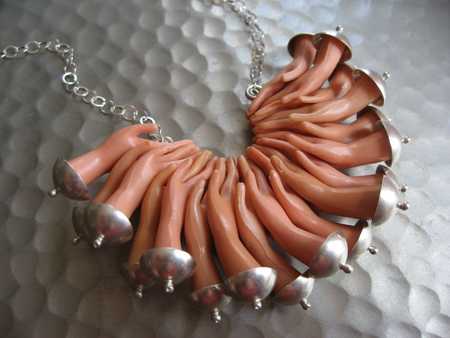Responsible Escapism in Literature
One of the frustrating parts of being a reader is (as with a lot of parts of life) dealing with snobbery. This is a danger that takes a special and easily recognizable form when you read a lot of old books. There is the temptation to segregate the world into two spheres: those things which are worthy of notice, and those things which are not.
Of course, this leads to a number of answerless arguments: what is the purpose of literature? How do you recognize good literature? What makes literature a classic, as opposed to just a fun read? These questions are unanswerable, in part, because they're irrelevant. Literature, for most people, is like any form of art - it is worth experiencing if it makes us a better person. This can be in a little way (cheering up a bad day, for instance) or in a monumental way (changing one's outlook on life), but nonetheless, that's what literature is for. If Twilight improves you as a person, it's a good book, for you. If the Bible does nothing for you, it's a bad book for you (or, you're just not ready for it. On both ends of the spectrum, books change over time).
This isn't to preclude all arguments over whether literature is 'good'. If a book is good for two people, and out and out damaging for two billion people, then it's important for us to talk about that. If a book cheers up some people, but also subtly teaches misogny or racism, then there's a reason we have conversations and argue about it. But in the end, these conversations can't be inspired by exclusivity and a search for a canon. They have to, simply, be a kindness we do each other, helping each other avoid books that hurt us, and find books that make us better people. Anything that distracts us from that goal is damaging, in the end, to our search for happiness.
One of these damaging fallacies is the subtle snobbery against books that are 'escapist'. I hesitate even to write the book. My friends who are fans of 'genre' (another subtle slur word) literature probably growl and get their hackles up just hearing the word. Fantasy, mysteries, historical romances, these sorts of books, says the conventional wisdom, are books that have some mild value as simple entertainment, but they're 'just escapism' - they don't have any intrinsic worth, except as a way to wind down and escape. They are the sitcoms of books, says this wisdom.
Examine this for a moment, though: it rests on the assumption that 'escape' is 'just for fun'. That the only value in becoming someone, something, or somewhere else is that it lets one ignore one's problems for a bit. And, in my personal opinion, no assumption could be more wrong.
'Escape' (already a loaded, and probably inappropriate word) is one of the most ancient and beautiful traditions of creative endeavor. Think of it - escape is the ability to put one's mind somewhere else. 'Escape' is, the root of all our ideas of divinity. It is the schoolmaster of empathy and selflessness. It's one of the most natural forms of play and self-education. It's a powerful form of introspection, and used by psychologists and sociologists every day. Putting one's self in someone else's place (real or imaginary) is at once playful, solemn, sacred, and benevolent, if done with the right spirit. (If you would like me to further justify any of these points, let me know - the essay was already getting a bit long).
But, nonetheless, we think of escape as the realm of children's literature. Something that we need when we are young, but that we cease to need when we age. But then, at the same time, we wonder why children are so much more openminded, so much quicker to learn and grow, so much more self-assured and powerfully vulnerable than grownups are. 'Mere' escapism is a vital part of our growth throughout our lives, not something that simply helps us figure out how to get to adulthood.
This week, at the GENIUS suggestion of my friend Nymeth, I read 'Emma', a Manga by Kaoru Mori about a Victorian maid and a rich young gentleman who fall in love. It was the most wonderful escape I've had in a very long time, and one that has, unmistakably, made me a better person for having read it. The story was amazingly, powerfully immersive, rich with detail, and with the ineffable sense of it being a truly different world, instead of simply a modern story set in dresses and gaslights.
And, from a 'literary' perspective, I can make my arguments. The artist/author is a careful student of symbolism and human nature, tiny subconscious clues suggesting depths to the individual characters that would have taken a book of Dickensian prose to suggest otherwise. The art in this (and this is from someone who doesn't always like the Manga art style) was beautiful, sweeping and echoing across the pages. This is the sort of book that a Bronte would write in different circumstances, and as someone who thinks of the Bronte as more akin to sisters and friends than favorite authors, that's the most sincere praise I can offer.
But to an extent, this misses the point - or more (because these elements are not ones I want to say aren't beautiful), it presumes that there is the important elements of the story, and then there's the ones that are just there to make it easy to read. Emma is very much an escapist book, and part of the appeal of the book for me was that I really, really wanted to be someone else for a little while. OF course, this could be a bad thing. This could mean I simply 'veg out' and read something useless and just pretend my problems don't exist for a while. Escapist reading (like any reading) can be a drug, and a very dangerous one.
But like many of the most beautiful of escapist books, Emma is both an honest and an ennobling experience, one that, instead of tricking you with a sense of false betterness, simply lets you stretch into a place you cannot normally be, to feel it's freedoms, and it's constraints, to let you play quietly with the pieces of you that resonate in the work, the pieces that otherwise atrophy, so that when they're needed they're too tired to stand. To, like the Greeks with their myths, stretch and figure the shards of the divine, by reflecting them off of the selves we choose to be, instead of simply the one life we live simply because of circumstance. That's what 'escapism' should be - the refreshing rites we play at naively as children, and that we practice with a whimsical solemn knowledge when we're grown.
(Image: Princess Hyacinth, by Alphonse Mucha. Incidentally, Mucha, one of my favorite artists, was a 'low artist' himself - painting everything from cigarette ads to theatre posters to advert calendars) Read More......

















